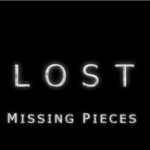 In anticipation of TRON: Legacy, I recently re-watched a bunch of simulation-world films including The Thirteenth Floor, eXistenZ, and the original TRON, which I hadn’t seen in over twenty-five years. While I remember being somewhat confused watching the futuristic Disney film as a kid, seeing it again with new eyes, I was amazed at how clearly it expressed the “life as illusion” theme I’ve been so fascinated by as an adult. In the original movie, Jeff Bridges is considered a “user.” While Bridges often plays users in his films, in this case, it refers to a computer user who manipulates the scenarios of a digital world that is very similar to our own. In the original film, users are considered mythical, messianic figures who can help free the programs from the game they find themselves in. This got me thinking.
In anticipation of TRON: Legacy, I recently re-watched a bunch of simulation-world films including The Thirteenth Floor, eXistenZ, and the original TRON, which I hadn’t seen in over twenty-five years. While I remember being somewhat confused watching the futuristic Disney film as a kid, seeing it again with new eyes, I was amazed at how clearly it expressed the “life as illusion” theme I’ve been so fascinated by as an adult. In the original movie, Jeff Bridges is considered a “user.” While Bridges often plays users in his films, in this case, it refers to a computer user who manipulates the scenarios of a digital world that is very similar to our own. In the original film, users are considered mythical, messianic figures who can help free the programs from the game they find themselves in. This got me thinking.
 Lost is dead. Long live Lost. And so it ends, in much the same way it began—with a close-up of Jack’s eye, staring straight up past the tall stalks of bamboo that circled the sky above. This time however, that eye would close, and with it, our six-season journey that took us right back to where we started—with questions about a mysterious show that seemed to parallel the mysteries of life. For some, the journey was far more compelling than the destination. For others, it was the perfect resolution and they can walk away feeling fulfilled. Whatever you thought about the conclusion, the one thing most viewers can agree on is that the show challenged us to think in ways we might not have otherwise. In short, Lost was a real trip. And what a long, strange trip it’s been.
Lost is dead. Long live Lost. And so it ends, in much the same way it began—with a close-up of Jack’s eye, staring straight up past the tall stalks of bamboo that circled the sky above. This time however, that eye would close, and with it, our six-season journey that took us right back to where we started—with questions about a mysterious show that seemed to parallel the mysteries of life. For some, the journey was far more compelling than the destination. For others, it was the perfect resolution and they can walk away feeling fulfilled. Whatever you thought about the conclusion, the one thing most viewers can agree on is that the show challenged us to think in ways we might not have otherwise. In short, Lost was a real trip. And what a long, strange trip it’s been.
 In the penultimate episode of Lost, “What They Died For,” Jacob tells the surviving Losties why he chose them as candidates: “I chose you because you were all alone. You were all looking for something that you couldn’t find out there. I chose you because you needed this place as much as it needed you.” This explanation really resonated with me, on one hand because it provided a mythologically sound answer to the main question I’ve always had about Lost: why do all these characters have major issues? And having that answer provided the other reason I really liked the explanation: I immediately understood that while Jacob was addressing the remaining candidates, he was really speaking to us.
In the penultimate episode of Lost, “What They Died For,” Jacob tells the surviving Losties why he chose them as candidates: “I chose you because you were all alone. You were all looking for something that you couldn’t find out there. I chose you because you needed this place as much as it needed you.” This explanation really resonated with me, on one hand because it provided a mythologically sound answer to the main question I’ve always had about Lost: why do all these characters have major issues? And having that answer provided the other reason I really liked the explanation: I immediately understood that while Jacob was addressing the remaining candidates, he was really speaking to us.
 In Lost’s “The Last Recruit,” the Man In Black refers to John Locke as a “sucker” for believing in fate. As he points out, Locke pursued this belief until it got him killed so perhaps MIB has a point. Despite his compelling argument, Jack takes a leap of faith towards the exact same conclusion as his former nemesis. So does this make Jack—the last recruit himself—a sucker too? My short answer is yes, but, what if this isn’t necessarily a bad thing?
In Lost’s “The Last Recruit,” the Man In Black refers to John Locke as a “sucker” for believing in fate. As he points out, Locke pursued this belief until it got him killed so perhaps MIB has a point. Despite his compelling argument, Jack takes a leap of faith towards the exact same conclusion as his former nemesis. So does this make Jack—the last recruit himself—a sucker too? My short answer is yes, but, what if this isn’t necessarily a bad thing?
 Once upon a time, you believed that you were very special. That you’d grow up to make a difference in the world, be paid handsomely for doing so, find true love, have some equally special children, and live happily ever after. Unfortunately, life hasn’t worked out quite as good as the fairytale. So, were we all lied to? In Lost’s “Happily Ever After” Desmond discovers that there is a reality where all his dreams can come true. So where is this reality and do we need to be as special as Desmond to get there?
Once upon a time, you believed that you were very special. That you’d grow up to make a difference in the world, be paid handsomely for doing so, find true love, have some equally special children, and live happily ever after. Unfortunately, life hasn’t worked out quite as good as the fairytale. So, were we all lied to? In Lost’s “Happily Ever After” Desmond discovers that there is a reality where all his dreams can come true. So where is this reality and do we need to be as special as Desmond to get there?
 I just watched what is quite possibly the most brilliant and hysterically funny movie review I’ve ever seen. This masterpiece critique was created by Mike of Red Letter Media and consists of seven parts that can all be viewed on YouTube. I highly recommend everyone viewing at least the first two parts of his videos, but it will not be necessary to understand what I’m about to say. His analysis brought to the forefront something that I’ve pushed down deep into my psyche for over ten years and am only now ready to release: The Phantom Menace is not only the biggest disappointment in movie history, it is also very likely completely responsible for screwing up our world’s history. Yes, I’m completely serious. Before I begin proving my point, let me begin with some facts that will be a little easier to swallow.
I just watched what is quite possibly the most brilliant and hysterically funny movie review I’ve ever seen. This masterpiece critique was created by Mike of Red Letter Media and consists of seven parts that can all be viewed on YouTube. I highly recommend everyone viewing at least the first two parts of his videos, but it will not be necessary to understand what I’m about to say. His analysis brought to the forefront something that I’ve pushed down deep into my psyche for over ten years and am only now ready to release: The Phantom Menace is not only the biggest disappointment in movie history, it is also very likely completely responsible for screwing up our world’s history. Yes, I’m completely serious. Before I begin proving my point, let me begin with some facts that will be a little easier to swallow.
 At the end of my last column, I asked whether the “variable” would prove to be an event that could change everything. The one thing that could have a domino effect on the outcomes of every event that followed. I wondered if this changeable event is what Ben and Widmore have been fighting for control of. After watching “The Variable,” I have to say “yes,” this is what the term is referring to. However, I’m still not so sure whether the variable will actually vary anything according to the mythology of the show.
At the end of my last column, I asked whether the “variable” would prove to be an event that could change everything. The one thing that could have a domino effect on the outcomes of every event that followed. I wondered if this changeable event is what Ben and Widmore have been fighting for control of. After watching “The Variable,” I have to say “yes,” this is what the term is referring to. However, I’m still not so sure whether the variable will actually vary anything according to the mythology of the show.
 There seems to be a pattern that determines when Locke and the gang are jumping in time on Lost. Whether it’s Richard Alpert telling Locke what to do when he next sees him, or Faraday telling Desmond to find his mother in the future, or Locke telling Alpert to seek him out in a few years once he’s born. So far, the jumps occur whenever a character is talking to another character about events from a different time. Perhaps fate is preventing the characters from knowing something they shouldn’t be privy too or maybe it’s time’s way of course correcting, but I believe there is a deeper reason why the time jumps are happening at that exact moment. And it relates to wisdom we can use in our real lives.
There seems to be a pattern that determines when Locke and the gang are jumping in time on Lost. Whether it’s Richard Alpert telling Locke what to do when he next sees him, or Faraday telling Desmond to find his mother in the future, or Locke telling Alpert to seek him out in a few years once he’s born. So far, the jumps occur whenever a character is talking to another character about events from a different time. Perhaps fate is preventing the characters from knowing something they shouldn’t be privy too or maybe it’s time’s way of course correcting, but I believe there is a deeper reason why the time jumps are happening at that exact moment. And it relates to wisdom we can use in our real lives.
 The first thing that stuck me as interesting in this episode was Michael, a.k.a., Kevin Johnson, responding to Sayid’s question about what he was doing there by saying that he was there to die. After watching the full episode, we may assume that he was referring to his repeated attempts at suicide, but if “The Myth of Lost” simulation theory is correct, Michael may be talking about something else—his desire to die and get out of the simulation already.
The first thing that stuck me as interesting in this episode was Michael, a.k.a., Kevin Johnson, responding to Sayid’s question about what he was doing there by saying that he was there to die. After watching the full episode, we may assume that he was referring to his repeated attempts at suicide, but if “The Myth of Lost” simulation theory is correct, Michael may be talking about something else—his desire to die and get out of the simulation already.
 Thirteen webisodes/mobisodes that were released weekly from November 2007 to February 2008 on abc.com (and Verizon mobile phones). Running between 1:22–3:27 in length, each mobisode filled in a gap in the story from LOST’s first three seasons. Episodes can now be found on YouTube. What follows below is the name of each episode, a brief description, and some points on how it fits in with the simulation theory presented in “The Myth of Lost.”
Thirteen webisodes/mobisodes that were released weekly from November 2007 to February 2008 on abc.com (and Verizon mobile phones). Running between 1:22–3:27 in length, each mobisode filled in a gap in the story from LOST’s first three seasons. Episodes can now be found on YouTube. What follows below is the name of each episode, a brief description, and some points on how it fits in with the simulation theory presented in “The Myth of Lost.”
 In anticipation of TRON: Legacy, I recently re-watched a bunch of simulation-world films including The Thirteenth Floor, eXistenZ, and the original TRON, which I hadn’t seen in over twenty-five years. While I remember being somewhat confused watching the futuristic Disney film as a kid, seeing it again with new eyes, I was amazed at how clearly it expressed the “life as illusion” theme I’ve been so fascinated by as an adult. In the original movie, Jeff Bridges is considered a “user.” While Bridges often plays users in his films, in this case, it refers to a computer user who manipulates the scenarios of a digital world that is very similar to our own. In the original film, users are considered mythical, messianic figures who can help free the programs from the game they find themselves in. This got me thinking.
In anticipation of TRON: Legacy, I recently re-watched a bunch of simulation-world films including The Thirteenth Floor, eXistenZ, and the original TRON, which I hadn’t seen in over twenty-five years. While I remember being somewhat confused watching the futuristic Disney film as a kid, seeing it again with new eyes, I was amazed at how clearly it expressed the “life as illusion” theme I’ve been so fascinated by as an adult. In the original movie, Jeff Bridges is considered a “user.” While Bridges often plays users in his films, in this case, it refers to a computer user who manipulates the scenarios of a digital world that is very similar to our own. In the original film, users are considered mythical, messianic figures who can help free the programs from the game they find themselves in. This got me thinking.




 At the end of my last column, I asked whether the “variable” would prove to be an event that could change everything. The one thing that could have a domino effect on the outcomes of every event that followed. I wondered if this changeable event is what Ben and Widmore have been fighting for control of. After watching “The Variable,” I have to say “yes,” this is what the term is referring to. However, I’m still not so sure whether the variable will actually vary anything according to the mythology of the show.
At the end of my last column, I asked whether the “variable” would prove to be an event that could change everything. The one thing that could have a domino effect on the outcomes of every event that followed. I wondered if this changeable event is what Ben and Widmore have been fighting for control of. After watching “The Variable,” I have to say “yes,” this is what the term is referring to. However, I’m still not so sure whether the variable will actually vary anything according to the mythology of the show. There seems to be a pattern that determines when Locke and the gang are jumping in time on Lost. Whether it’s Richard Alpert telling Locke what to do when he next sees him, or Faraday telling Desmond to find his mother in the future, or Locke telling Alpert to seek him out in a few years once he’s born. So far, the jumps occur whenever a character is talking to another character about events from a different time. Perhaps fate is preventing the characters from knowing something they shouldn’t be privy too or maybe it’s time’s way of course correcting, but I believe there is a deeper reason why the time jumps are happening at that exact moment. And it relates to wisdom we can use in our real lives.
There seems to be a pattern that determines when Locke and the gang are jumping in time on Lost. Whether it’s Richard Alpert telling Locke what to do when he next sees him, or Faraday telling Desmond to find his mother in the future, or Locke telling Alpert to seek him out in a few years once he’s born. So far, the jumps occur whenever a character is talking to another character about events from a different time. Perhaps fate is preventing the characters from knowing something they shouldn’t be privy too or maybe it’s time’s way of course correcting, but I believe there is a deeper reason why the time jumps are happening at that exact moment. And it relates to wisdom we can use in our real lives.


